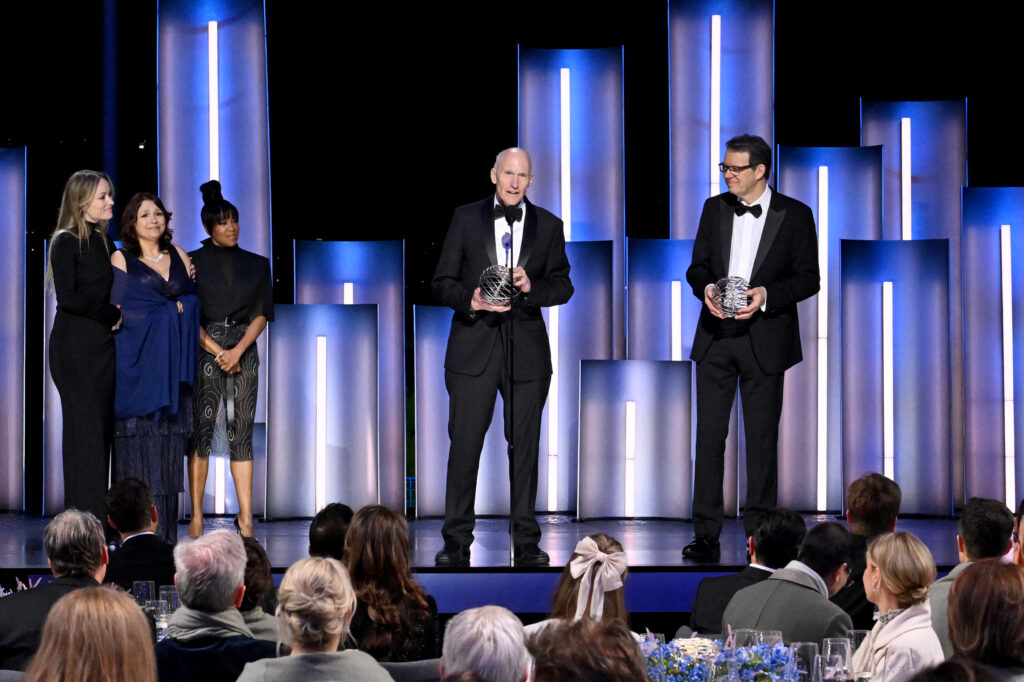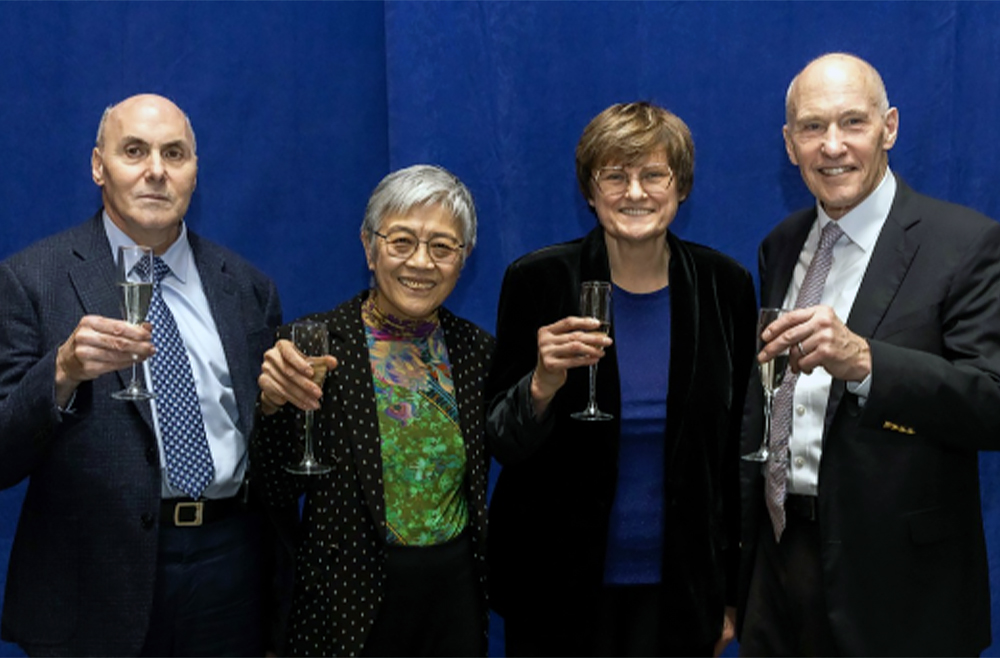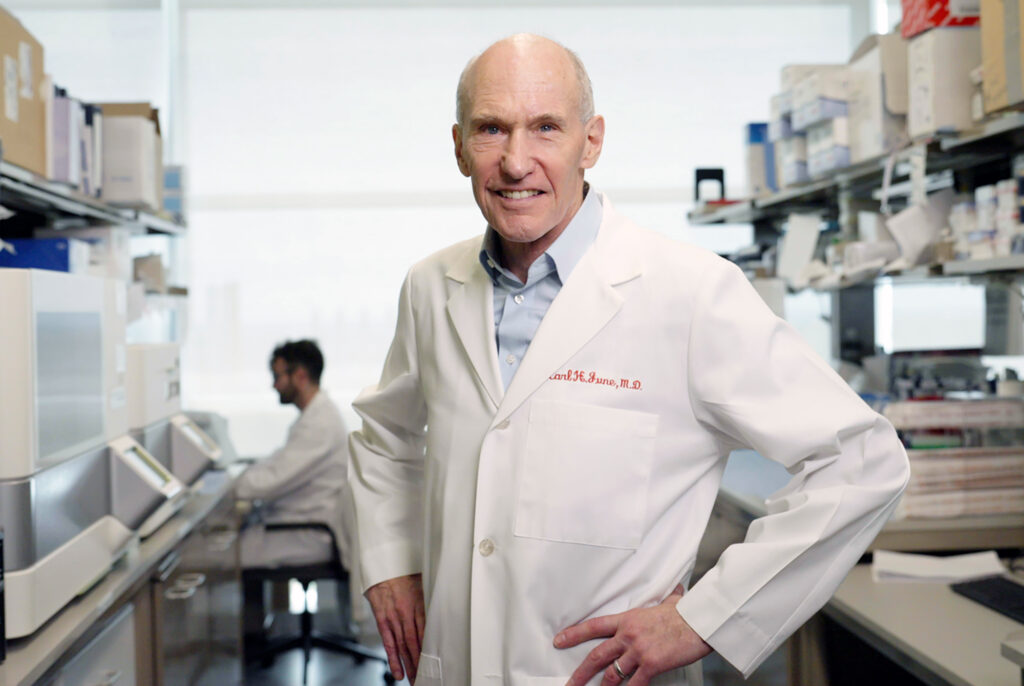
In his acceptance speech for the 2024 Breakthrough Prize in Life Sciences, Carl June, a pioneer in cancer treatment, highlighted the people most affected by his groundbreaking work developing CAR T cell immunotherapy: the patients.
When all other cancer treatments failed them, said June, “instead of giving up, they pushed forward and volunteered for an unproven experimental new treatment. It’s because of these brave volunteers like our first patients Doug Olson, Bob Levis, and Emily Whitehead, that we have now treated over 34,000 cancer patients.”
June, the Richard W. Vague Professor in Immunotherapy in Penn’s Perelman School of Medicine and director of the Center for Cellular Immunotherapies (CCI) at Penn Medicine’s Abramson Cancer Center, was honored at the 10th Breakthrough Prize awards ceremony for the development of chimeric antigen receptor (CAR) T cell immunotherapy. This is a cancer treatment approach in which each patient’s T cells are modified to target and kill their cancer cells.
Held on Saturday, April 13, and nicknamed the “Oscars of Science,” world-renowned researchers exchanged lab coats for tuxedos at the star-studded Breakthrough Prize awards ceremony hosted by Emmy Award-winning actor and comedian James Corden. Actors Olivia Wilde and Regina King handed June and his co-winner, Michel Sadelain of Memorial Sloan Kettering Cancer Center, the awards.
“We’re so grateful to have some recognition for a lot of years of work on cancer research,” said June at the event. “I think the best thing is that people learn about this, that this came out of research right here in the country. Now there’s been 34,000 people treated and it just started 10 years ago so people need to understand the value of research to make these new breakthrough therapies.”
Read the full story in Penn Today.
Carl June is a member of the Penn Bioengineering Graduate Group. Read more stories featuring June in the BE Blog.


